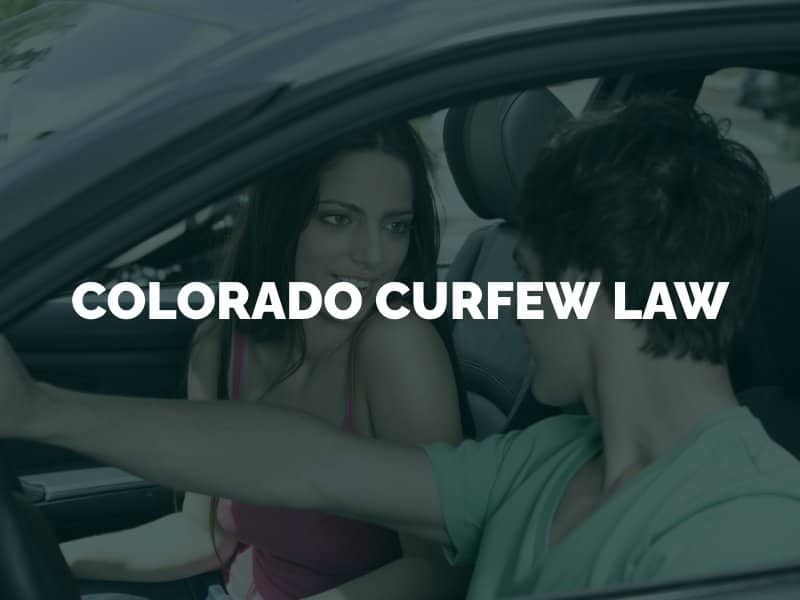As a resident of Colorado, it is your duty to obey all state laws. You must also stay up-to-date on city laws and mandates. This includes Colorado’s curfew laws, as well as any short-term curfews enacted by the mayor of your city. Breaking a curfew could affect a personal injury claim, such as a car accident case in Colorado, by placing liability with the party in the wrong.

The main curfew in Colorado is the statewide curfew law for teen drivers. This law only applies to drivers who are under the age of 20 years old. It states that once a teenager gets his or her driver’s license, for the first year, the teen must abide by a curfew that limits the lawful hours he or she may drive. A teen legally cannot operate a motor vehicle between 12:00 a.m. and 5:00 a.m. for one year after receiving his or her license.
There are some exceptions to this rule, including if:
The purpose of the teen driving curfew law is to reduce the risk of teen driving accidents. Driving late at night increases the odds of certain accident risks, such as driving under the influence of drugs or alcohol and drowsy driving. It is also more dangerous to drive at night due to environmental factors, such as more difficulty seeing and glares from headlights.
Breaking the teen driving curfew in Colorado is a traffic infraction that can lead to penalties such as a fine of up to $50, 2 points on the teen driver’s license and 8 to 24 hours of mandatory community service. A second violation increases the penalties to a fine of up to $150 and 16 to 40 hours of community service.
In Colorado, municipalities have the legal authority to enact curfew laws in situations that may threaten public safety. For example, due to public unrest connected to the homicide of George Floyd, the Mayor of Colorado Springs enacted a curfew from June 3, 2020 to June 8, 2020. Then, in November, the Mayor of Denver ordered a curfew for city residents of 10:00 p.m. from November 8, 2020 to December 7, 2020 to help curb the spread of the COVID-19 virus.
If a teen driver or someone else is breaking a state or municipal curfew law at the time that a car accident occurs, he or she may bear liability for the collision. Breaking a curfew could play a factor in a car accident case in Denver if driving late at night caused or contributed to the crash.
For example, if there is evidence that a teenager fell asleep behind the wheel while breaking curfew and driving at 2:00 a.m., the injured party could use the broken curfew as evidence of the teen driver’s negligence. In car accident law, negligence refers to any action or omission by a driver that an ordinarily prudent person would not have committed in the same circumstances.
If you get into a car accident in Colorado and the other driver is someone who is breaking curfew, he or she may be financially responsible for your injuries and related losses. Contact a personal injury attorney in Denver to discuss your case right away. A Denver car accident attorney can help you gather evidence against the other driver, including evidence of a broken curfew and/or negligence, and fight for fair financial compensation on your behalf.